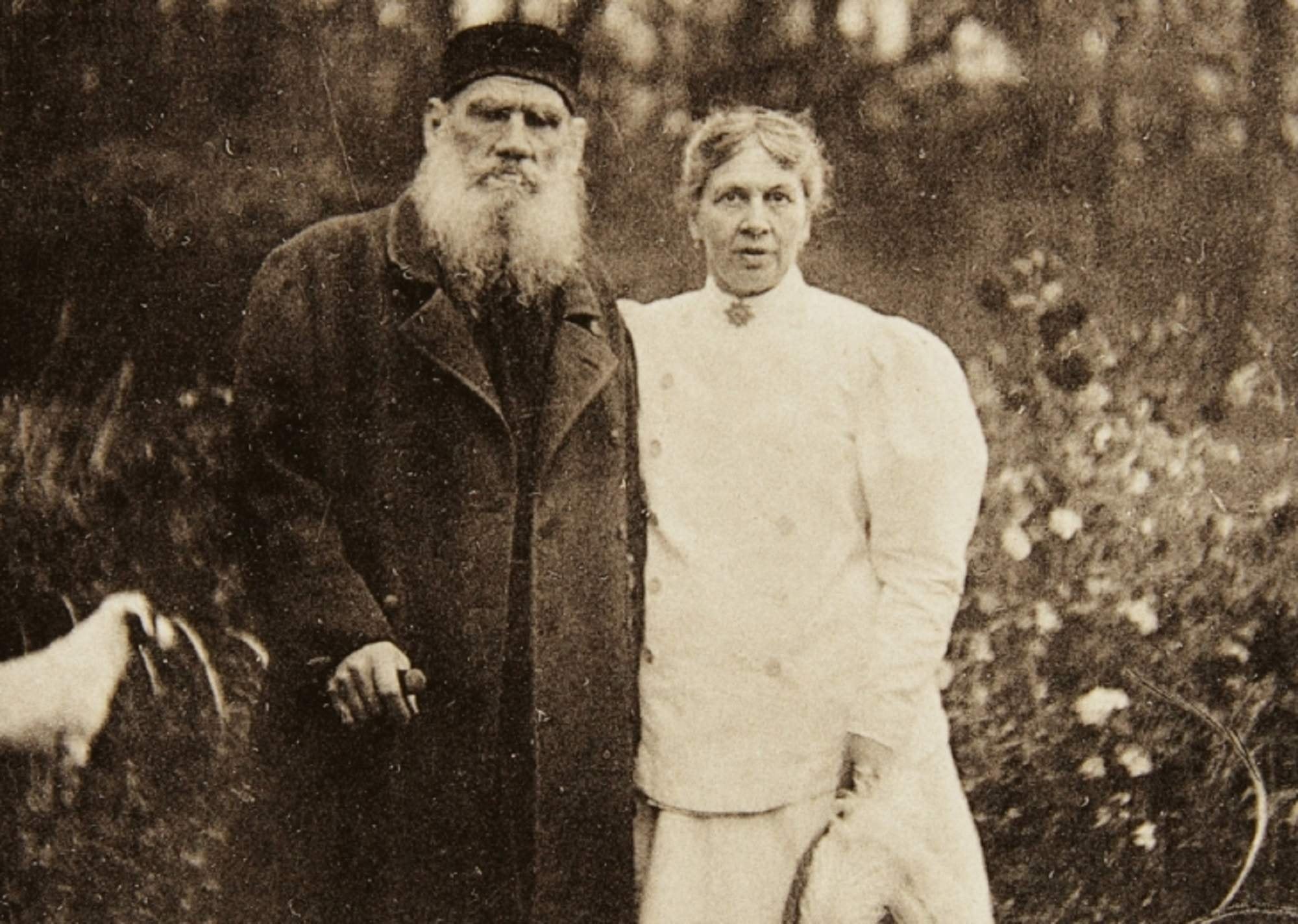Leo Tolstoy Archive
Written: 1885
Source: Original Text from Gutenberg.org
Transcription/Markup: Andy Carloff
Online Source: RevoltLib.com; 2021

Day by day and week by week the year went round. Michael lived and worked with Simon. His fame spread till people said that no one sewed boots so neatly and strongly as Simon’s workman, Michael; and from all the district round people came to Simon for their boots, and he began to be well off.
One winter day, as Simon and Michael sat working, a carriage on sledge-runners, with three horses and with bells, drove up to the hut. They looked out of the window; the carriage stopped at their door, a fine servant jumped down from the box and opened the door. A gentleman in a fur coat got out and walked up to Simon’s hut. Up jumped Matryona and opened the door wide. The gentleman stooped to enter the hut, and when he drew himself up again his head nearly reached the ceiling, and he seemed quite to fill his end of the room.
Simon rose, bowed, and looked at the gentleman with astonishment. He had never seen any one like him. Simon himself was lean, Michael was thin, and Matryona was dry as a bone, but this man was like some one from another world: red-faced, burly, with a neck like a bull’s, and looking altogether as if he were cast in iron.
The gentleman puffed, threw off his fur coat, sat down on the bench, and said, “Which of you is the master bootmaker?”
“I am, your Excellency,” said Simon, coming forward.
Then the gentleman shouted to his lad, “Hey, Fedka, bring the leather!”
The servant ran in, bringing a parcel. The gentleman took the parcel and put it on the table.
“Untie it,” said he. The lad untied it.
The gentleman pointed to the leather.
“Look here, shoemaker,” said he, “do you see this leather?”
“Yes, your honor.”
“But do you know what sort of leather it is?”
Simon felt the leather and said, “It is good leather.”
“Good, indeed! Why, you fool, you never saw such leather before in your life. It’s German, and cost twenty rubles.”
Simon was frightened, and said, “Where should I ever see leather like that?”
“Just so! Now, can you make it into boots for me?”
“Yes, your Excellency, I can.”
Then the gentleman shouted at him: “You can, can you? Well, remember whom you are to make them for, and what the leather is. You must make me boots that will wear for a year, neither losing shape nor coming unsown. If you can do it, take the leather and cut it up; but if you can’t, say so. I warn you now if your boots become unsewn or lose shape within a year, I will have you put in prison. If they don’t burst or lose shape for a year I will pay you ten rubles for your work.”
Simon was frightened, and did not know what to say. He glanced at Michael and nudging him with his elbow, whispered: “Shall I take the work?”
Michael nodded his head as if to say, “Yes, take it.”
Simon did as Michael advised, and undertook to make boots that would not lose shape or split for a whole year.
Calling his servant, the gentleman told him to pull the boot off his left leg, which he stretched out.
“Take my measure!” said he.
Simon stitched a paper measure seventeen inches long, smoothed it out, knelt down, wiped his hand well on his apron so as not to soil the gentleman’s sock, and began to measure. He measured the sole, and round the instep, and began to measure the calf of the leg, but the paper was too short. The calf of the leg was as thick as a beam.
“Mind you don’t make it too tight in the leg.”
Simon stitched on another strip of paper. The gentleman twitched his toes about in his sock, looking round at those in the hut, and as he did so he noticed Michael.
“Whom have you there?” asked he.
“That is my workman. He will sew the boots.”
“Mind,” said the gentleman to Michael, “remember to make them so that they will last me a year.”
Simon also looked at Michael, and saw that Michael was not looking at the gentleman, but was gazing into the corner behind the gentleman, as if he saw some one there. Michael looked and looked, and suddenly he smiled, and his face became brighter.
“What are you grinning at, you fool?” thundered the gentleman. “You had better look to it that the boots are ready in time.”
“They shall be ready in good time,” said Michael.
“Mind it is so,” said the gentleman, and he put on his boots and his fur coat, wrapped the latter round him, and went to the door. But he forgot to stoop, and struck his head against the lintel.
He swore and rubbed his head. Then he took his seat in the carriage and drove away.
When he had gone, Simon said: “There’s a figure of a man for you! You could not kill him with a mallet. He almost knocked out the lintel, but little harm it did him.”
And Matryona said: “Living as he does, how should he not grow strong? Death itself can’t touch such a rock as that.”